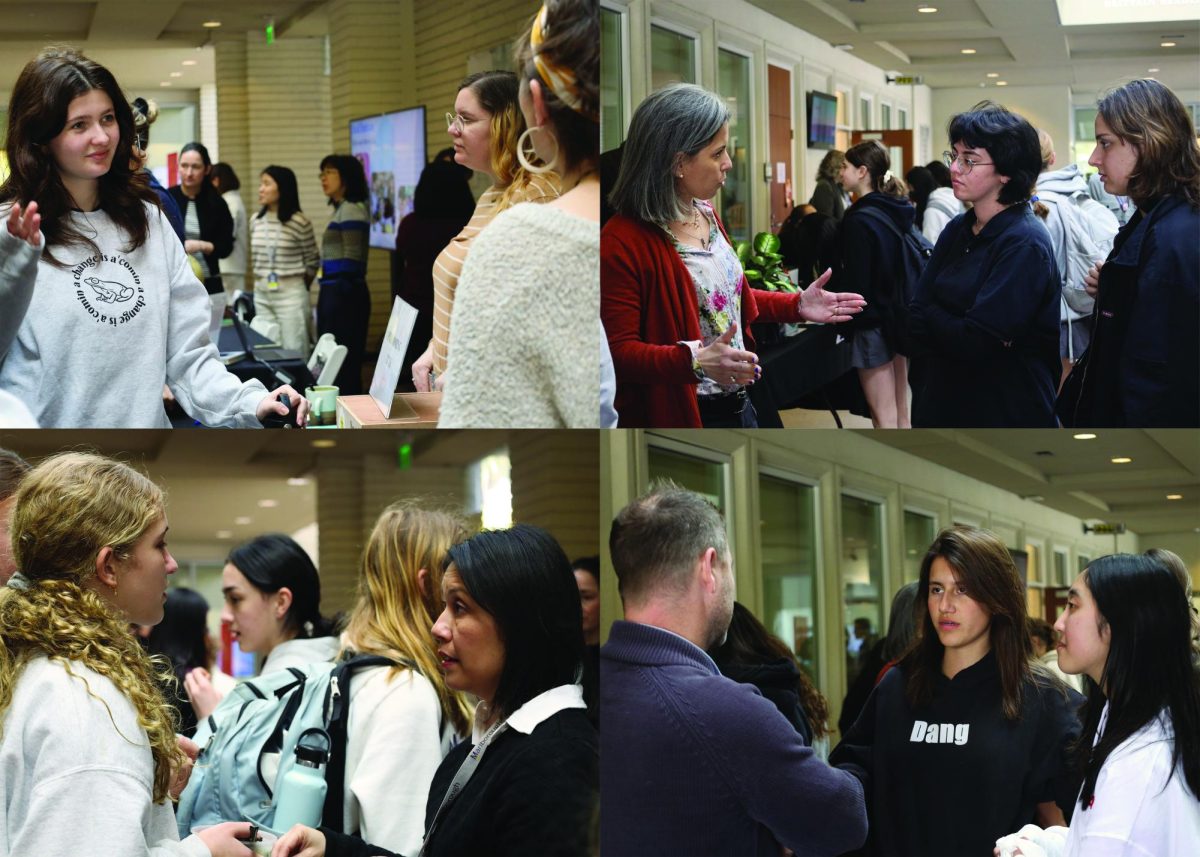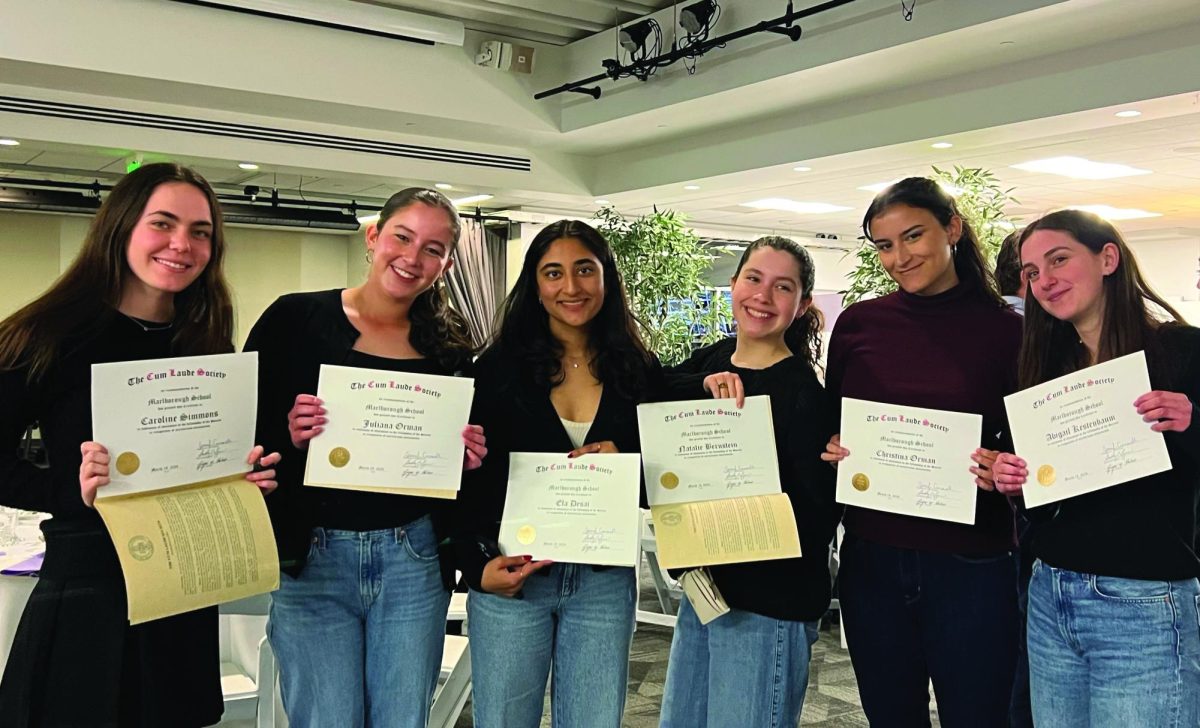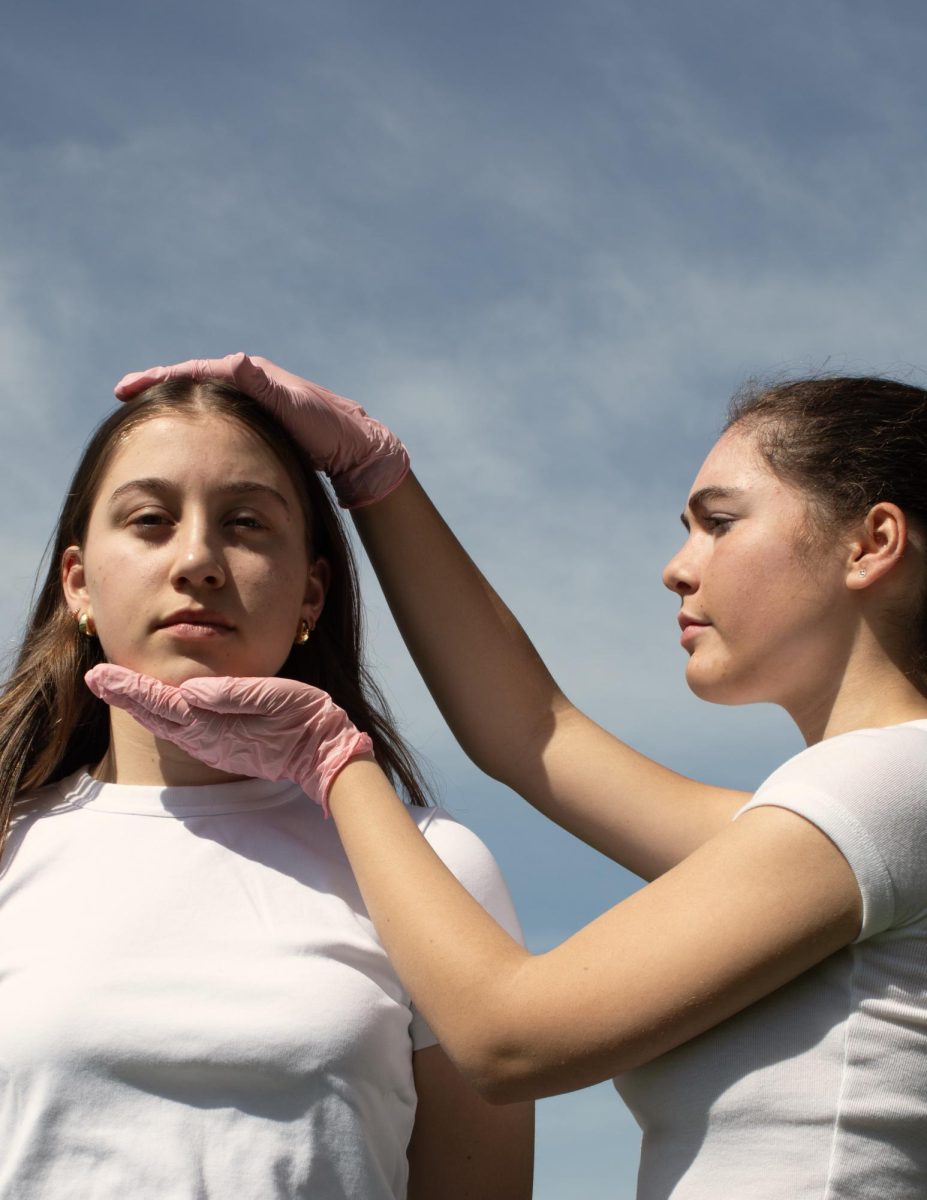
How is Party Culture Regulated?
Movies such as Superbad, The First Time and Mean Girls portray party scenes filled with fake IDs, loud music and the abuse of drugs and alcohol. There are usually images of houses littered with red solo cups and scenes of teens panicking about their parents coming home to a house strewn with empty bottles of alcohol. The media creates stereotypes of “typical” teen parties. Because of the way mainstream media promotes archetypes of youth party culture, parties often have negative connotations. This stereotype generates a fear of adolescents’ partying.
There are several adults on campus that work to ensure that school sponsored events are fun and safe. 11th Grade Dean and Spanish instructor Sandra Battiata helps advise the junior class council on planning semiformal. She also advises her students to be cautious about their behavior on and off campus.
“The School has the understanding that students represent Marlborough at all times,” Battiata said.
Although underage drinking has decreased in recent years, the fears are not invalid. According to a 2015 National Survey on Drug Use and Health, about 7.7 million Americans between ages 12-20 report current alcohol consumption. Additionally, in a survey sent out to Marlborough’s Upper School, 84% of students reported that there is alcohol at the parties they attend.
Consequently, adults often regulate party culture on the local and state level. For example, on the local level, District 4 Council Member David Ryu has addressed the phenomenon of people renting out houses solely for partying purposes. The popularity of these venues for high school parties has been on the rise, so Ryu drafted an ordinance to regulate these so-called “party houses,” that was passed on Thursday, Nov. 3. Ryu outline in a statement why he believed getting rid of party houses is such an important issue.
“The issue has become so acute that entire houses are being built for the purpose of hosting weekly parties,” Ryu said. “My goal is to protect the quality of life of our residential neighborhoods and to prioritize public safety.”
On the state level, the California government regulates party culture through the implementation of curfew laws. Curfew laws require teenagers to return home before 11 p.m. and not leave the house before 5 a.m. Curfew violations are punishable by fines up to $675, and violations may also lead to community service and driver’s license restrictions. According to both students and parents, it is debateable whether or not these rules are successful in regulating parties in Los Angeles.
Several students explained that curfew laws aren’t effective at mandating teenagers’ partying.
“I don’t think curfew laws really prevent partying because I don’t think you can get in trouble for staying out past 11 on private property,” Christina Hayes ’17 said.
Hayley Kondon, Emma Kondon ’17’s mother, agrees that curfew laws don’t really enforce anything.
“I trust Emma in coming home at a reasonable time on her own, but I don’t think curfew laws motivate many teenagers in general to go home before 11 p.m.,” Hayley Kondon said.
The Marlborough Administration Addresses Party Culture
Schools must always face a fundamental question about what falls under their jurisdiction and what falls under the authority of parents. It is expected that schools monitor what students do inside of the school, but to what degree are they obligated to monitor behavior outside of school? Some students can engage in ‘party’ behavior, such as substance abuse, and schools must monitor this by means of prevention and educating parents and students on the dangers of these behaviors. However given the fact that this activity does not happen at school, administrators struggle to regulate behaviors off campus.
Marlborough’s administration seeks to use information regarding peer pressure and party culture to try to educate students about engaging in risky behavior. For example, physical education instructor Tinka Brown teaches a mandatory health class for freshman that educates students with a drug and substance unit and a mental health unit. The class examines how to stay healthy, get help if one is struggling with mental illness or substance abuse and the dangers of using substances.
School administrators, Head of Upper School and Assistant Head of School Laura Hotchkiss and Head of Middle School Sean Fitts, work to prevent the School’s name from being attached to a party. They also both aim to ensure that students are safe both on and off campus. Hotchkiss sends an email every year to educate parents on proper behavior after semiformal for sophomores and juniors, detailing what is acceptable when it comes to after-parties.
Hotchkiss said she does not want inappropriate behavior associated with the school, and she realizes that risky behavior occurs at parties after school-sponsored functions.
“While I want the girls to enjoy a fun-filled evening with friends, it is important to reiterate the School’s policies…Marlborough neither sponsors nor condones any after-parties, and any such events are not under the School’s jurisdiction nor supervised by School personnel,” Hotchkiss said in an email to parents warning them of after-parties post the semiformal event.
Students Reflect on the Party Culture At Marlborough
A 2003 Youth Risk Behavioral Survey conducted by the Los Angeles Department of Public Health reported that 42% of high school students in the LA Unified School District said they had illegally consumed alcohol in the last month. Underage drinking is, for many, a mainstay of American adolescence; high school parties are represented extensively in books, television shows, and movies. Partying has always seemed to exist as a necessary part of the high school experience, and perpetuates a culture that pressures students to party.
Marlborough is not an exception to this phenomenon. Despite the School’s reputation for being a rigorous academic environment, students still find ways to partake in the American pastime of the high school party scene. In a survey sent out to the Upper School last week, 59.3% of students answering the survey said that they have gone to parties.
Director of Educational and Counseling Services Marissa Crandall said that several factors come into play when determining why students party. She said that research has shown that teenagers are more likely to take risks because of their not fully developed frontal lobe, which is the brain’s decision-making center. This can lead young people to have heightened emotions, thereby causing them to make rash judgments.
Students’ brains are also impacted under high stress. Especially at Marlborough, Crandall said that students who are very stressed due to a highly regimented schedule may also turn to substances.
“A lot of people have a lot of issues about school, a lot of people are anxious,” Crandall said.
Though not all students at Marlborough choose to attend high school parties, and few do so very frequently, the presence of parties as part of Marlborough’s culture is undeniable according to the survey in which 59.3% of upper school students said they have attended parties.
When asked how prevalent students believe partying to be, there were several different ideas.
Lauryn Tauber ’17 said she thinks about eighty percent of the senior class attends parties.
Meanwhile, Ally Simmons ’17 offered a much lower estimate.
“It’s maybe like 50-50, 60-40,” Simmons said.
Alexa Bates ’17 explained that parties are most common for seniors, but are not as common in other grades.
Most high school seniors interviewed said that they did not attend parties in the 9th and 10th Grades, but this trend is not reflected among current sophomores and juniors. Bella Kong ’19 said that in the current 10th grade, there are parties every weekend.
Claire Cohen ’18 agreed.
“For a lot of people 10th Grade academically is not as bad [as 11th Grade], so they partied more than they [do] this year. But I know for some people that’s completely different… I think it depends on your schedule,” Cohen said.
Students said that parties, which almost always involve alcohol, are a way for them to have a more normal high school experience that they don’t often get at Marlborough.
“At Marlborough, we don’t have football games, we don’t have a lot of the things that one would typically say [are] part of the high school experience, but we can go to parties with other people from other schools and just have some kind of social, normal, high school experience,” Tauber said.
Still, students said they don’t think that attending a small, all-girls school greatly affects party culture.
“I think a lot of it is just meeting people from other schools, and you can do that at so many different places. You could join a club, you could be on a sports team, you could go to things like Latin conventions… I think there are a lot of opportunities outside of parties,” Tauber said.
Chloe Kim ’19 agreed, saying that she thinks that her friends at Marlborough, in fact, party less than her friends at other schools like Harvard-Westlake.
Simmons said that she doesn’t think that Marlborough students are pressured to drink while at parties, and that it’s possible to enjoy them without drinking. Allegra Smith ’17, however, disagreed, saying that students might feel uncomfortable being surrounded by drunk people while sober.
While many students said that alcohol is natural at parties, most students said that other drugs are not very common.
“Generally, I don’t think hard drugs are used as much as something like marijuana, but binge drinking is much more prevalent,” Grace Kim ’17 said.
Marlborough alumnae elaborated that their experiences in high school were somewhat different than their college classmates, especially in terms of drugs. Talia Subar ’16 said that high school parties were a lot more frequent for some of her college peers, and that hard drugs were a noticeable presence at their parties, whereas they weren’t so much in the party scene at Marlborough.
Students said that while their party life is removed from their life at school, they did think that going to Marlborough has affected the way students act at parties.
“I think we’re pretty responsible. Marlborough girls know how to control themselves, I think. It’s just the type of student that’s attracted to the school… the typical Marlborough girl knows how to do what’s best for her,” Cohen said.
Tauber added that she thinks the education provided to students at Marlborough has been helpful.
“I actually feel like health class in 9th Grade was fairly informative on what happens at parties because it was phrased in a way that says ‘If you do do this—even though you hypothetically shouldn’t—here’s how you handle when things go wrong.’ I think that that’s been really valuable,” Tauber said.
Some students, on the other hand, think that more education could be helpful.
Smith said that she thinks Marlborough could do a better job of teaching students what to expect at college, which many students fear.
“What they should do is have recent graduates, like from a year or two ago, come in and say ‘this is what I’ve seen at college and this is what you should know from my experience,’” Rosie Collier ’17 said.
Students said that they believe it’s important that Marlborough does not try to crack down on parties and prevent students from attending, because in that case, parties might become more more underground and dangerous.
“[Illegal] things are still going to happen but they’re going to happen in less safe, more vulnerable places. … As much as there might be peer pressure and stuff, I think that it’s safer to be around people if you’re experimenting with drugs, or whatever, than if you’re alone,” Smith said.
Parties, nonetheless, remain a divisive issue on campus. Despite participation by Marlborough students, many students do not believe partying to be a positive facet of high school life.
Grace Kim ’17 is vocal about her dislike of party culture.
“I think that people feel like they need to go to parties Friday night and Saturday night to prove some kind of life outside of Marlborough that I think is false,” Kim said. “[Party culture] is not a positive culture because it’s something that’s trying to be some kind of planned rebellion against adolescence. But planned rebellion is just an oxymoron.”
While party culture at Marlborough may not be as prevalent as it is at other schools, given the fact that more than half of the Upper School students surveyed attend parties, it is still widespread. The definition of what it means to party is quite different for each student, and the stereotype that is portrayed in the media does not reflect what party culture looks like in 2016. The most important thing when it comes to party culture is to stay safe and be aware of how your actions may affect you or others.












